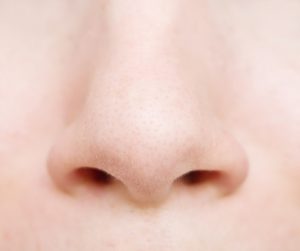
Instinct for survival
Much like animals in the wild, we have also developed a set of skills that help us survive against things that can harm our health. It is possible that our sense of smell has evolved to a point where we can instinctually recognize sickness, therefore, we’d avoid those affected. This would, in effect, increase our survival rate and allow us to live longer.
A research team working at Sweden’s Karolinska Institutet found evidence that humans may use their olfactory nerve (the sense of smell) to help protect against contagious disease. Utilizing a double-blind study—where neither the participants nor the experimenters know the answers—volunteers undergoing functional MRI scans were asked to view photos and sniff body odor samples from people with activated immune systems.
The researchers injected 22 participants with a harmless bacterium that would activate their immune systems. Samples of each participant’s body odor were also obtained in addition to a photograph of their faces. At a later date, this same group was also given a placebo shot that had no effect on their immune system. Body odor samples and photographs of their faces were taken once again.
The samples and photographs were shown to a separate group during fMRI scanning to record their brain activity.
Natural avoidance of the sick
The researchers found these new volunteer’s brains became activated when sniffing the body odor of immune-activated subjects. Also, these “sick” subjects were deemed to be less socially desirable based on their photographs. Interestingly, when the new volunteers were shown “healthy” photographs after smelling the body odor of “sick” participants, they were still deemed socially unattractive.
This result suggests that there is a multi-sensory integration within our nervous system, leading us to make decisions based on survival. The researchers coined this a disease-avoidance model and it could help us explain why we do the things that make us human.